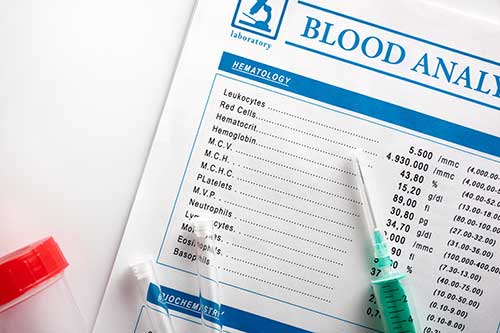I came off of statins in October 2016. I stopped taking my other medications - ramipril for blood pressure, clopidogrel as an anti-coagulant, and metoprolol (beta-blocker to reduce heart rate and blood pressure) between June and October 2016.
For those who are following my progress I am posting my latest blood work results:
Total Cholesterol: 5.07 mmol/l
Triglycerides: 0.71 mmol/l
HDL: 2.2 mmol/l
LDL: 2.53 mmol/l
non-HDL: 2.87 mmol/l
VLDL: 0.32 mmol/l
TC/HDL ratio: 2.3
TG/HDL ratio: 0.32
Fibrinogen: 2.8 g/l
Homocysteine: 6.0 umol/l
Lp(a): 540 mg/l (above 300 mg/l - this is sub-optimal)
I was supposed to get my MPO (Myeloperoxidase) and NMR Lipoprofile (LDL particle number and size) measurements as well, but the lab fouled up and I didn't get this information.
I will post these values after my next blood test.
---------------------------------------
Except for Lp(a) which is to a great extent genetically pre-determined, all of my blood work markers are in the normal or optimal range. My Lp(a) has oscillated between 510 on the low side and 769 on the high side over the last 18 months. I'm doing the Linus Pauling Therapy to try and lower this but have had only modest success. I will stick with it and see if I can get it even lower. My research on Lp(a) is that it is not as dangerous as long as your LDL-C values are low to normal. I would infer that an LDL-P (particle number) and size that are optimal would also render the Lp(a) value as less risky.
I am 5' 10" tall (1.78 m) and weigh 152.6 lbs or 69.2 Kg. My waist size is 31 inches or 78.74 cm.
I exercise daily - 13,000 average daily steps; resistance training with weights every other day; cardio training - sprints on a treadmill (high intensity interval training) every other day. I also play ice hockey once per week and walk while playing golf twice per week.
I continue taking the supplements I noted in previous posts but have moved to a higher quality curcumin supplement (Theracumin) yeswellness.com/natural-fac...
I'm on a whole-foods, plant-based diet, including large amounts of legumes - but have lean chicken for two meals per week and wild caught fish for two meals per week to enhance protein. Other sources of protein - 0% fat plain Greek Yogurt (no sugar); egg whites.
I eat red meat less than once per month in small quantities.
I do NOT take any prescription medications. I take an 81 mg daily aspirin but am now reducing the frequency to once every other day. I would optimally like to eliminate the aspirin due to long term side effects. If my Fibrinogen and homocysteine levels remain optimal with every other day, then I will reduce to one every third day based on this research:
